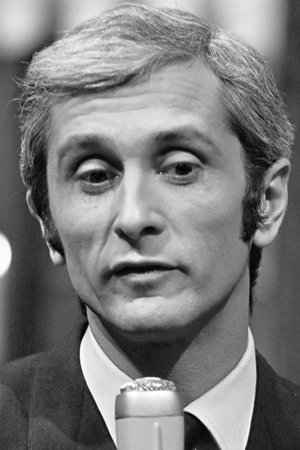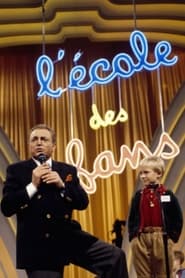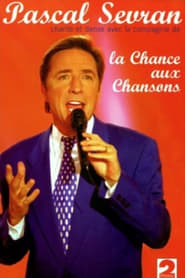
Marcel Amont
Marcel Amont (born Marcel Jean-Pierre Balthazar Miramon on April 1, 1929) is a French singer and actor of the 1960s and 1970s. Amont also recorded in Occitan and promoted Bearn culture from the 1950s. He is a singer of great artistic career, being one of the most popular in France, and the most prolific of the French language with many years of career. He has sold 300 million albums, has recorded 30 albums, 79 singles 126 ep, 11 compilations and about 1,000 songs in different languages (English, Italian, Portuguese, Chinese, German, Irish and Spanish). He is famous for having performed songs by composers such as Georges Brassens, Léo Ferré and Georges Moustaki. Inspired by American pop and jazz in the style of Frank Sinatra, Tony Bennett and Andy Williams. He recorded international hits such as "Blue, bland, blond", "L'amour ça fait passer le temps", "Ballade pour l'espagnol", "Le plus beau tango du monde" and "Cathy, fais-moi danser". His famous song entitled "Un Mexicain" reached number 1 on the charts in France. He has also made films and is director of soundtracks. Born in Bordeaux on April 1, 1929, son of Modeste Miramon, employee of the railways, and Romélie Lamazou, nurse. He doubted, after the baccalaureate, between the chair of physical education and the Conservatory of dramatic art. The comedy, and finally the song, will prevail over the sport. After having toured the arts of Bordeaux, he "got up" in Paris in the late 1950s, where he made his name little by little in most cabarets of the two banks (Villa d'Este, Fontaine des 4 saisons, etc. ). From a young age he was fond of jazz and pop music. In 1951, Marcel Amont decided to try his luck in Paris and became famous performing in several cabarets. For many years, Marcel Upstream enchainer such benefits before 1956 to secure the first parts of Edith Piaf, allowing it to quickly become the revelation of the year and his first public recording, which allows him to get the novel Grand Prix de Novela the French Academy of Charles Cros. A success that opens the doors of the cinema, and will become with Brigitte Bardot in The bride is too beautiful. 1956 is the miraculous year. At the Olympia, he was cut in the first part of Edith Piaf: first hired as a "supplement to the program," a sacred "revelation of the year" and finished five weeks later in second place on the poster. Encouraged by this success in public, he recorded his first album in public and receives the Price of the Académie Charles-Cros in the company of Serge Gainsbourg and Juliette Gréco and, in the process, debut in the cinema with Brigitte Bardot in the bride is too beautiful. We often see Marcel Amont in the famous television show 36 chandelles. Through his appearances in the films La mariée est trop belle (1956), together with Brigitte Bardot and La conduite à gauche (1961), Marcel acquires a great reputation in France. He signed a record contract Polydor Records in that same year when he released his first single Escamillo. In 1957 he released his first album entitled Marcel Amont and in Bleu, Blanc, Blond. ... Source: Article "Marcel Amont" from Wikipedia in English, licensed under CC-BY-SA 3.0.
Known For
Credits
- 2008 ·Age Tendre - La tournée des Idoles - Saison 3as Self
- 2008 ·N'oubliez pas les paroles - Primes événementielsas Self
- 2006 ·Les années bonheuras Self
- 1998 ·Vivement dimancheas Self
- 1992 ·Dorothée : Le cadeau de la rentréeas Self
- 1987 ·Le monde est à vousas Self
- 1987 ·Sacrée soiréeas Self
- 1984 ·La Chance aux chansonsas Self
- 1982 ·Champs-Elyséesas Self
- 1977 ·Fan Schoolas Self
- 1976 ·30 millions d'amisas Self
- 1975 ·Numéro unas Self - Host
- 1975 ·Numéro unas Self
- 1975 ·Système 2as Self
- 1975 ·Les Rendez-vous du dimancheas Self
- 1975 ·Midi Premièreas Self
- 1973 ·Molière pour rire et pour pleureras La Fontaine
- 1972 ·Midi trenteas Self
- 1972 ·Le Grand Échiquieras Self
- 1971 ·Cadet Rousselleas Self
- 1971 ·Samedi soiras Self
- 1968 ·À bout portantas Self
- 1968 ·Night-Clubas Self
- 1967 ·Europartyas Self
- 1962 ·Conduite à gaucheas Pierre
- 1956 ·Her Bridal Nightas Toni
- 1955 ·Airs de Franceas Self
- 1955 ·Airs de Franceas Robert




